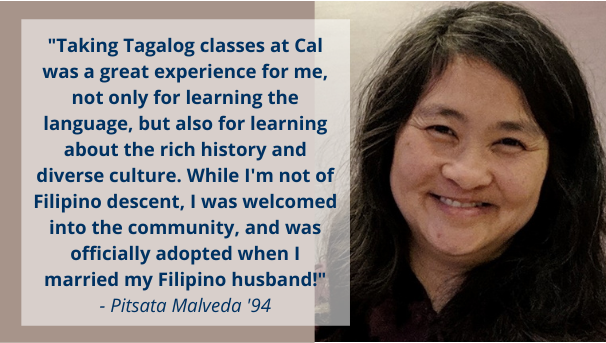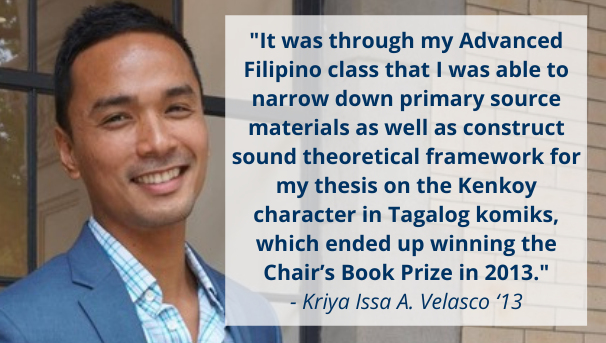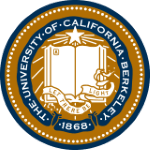Thank you for visiting!
Although our online crowdfunding campaign has ended, gifts can still be made over the phone by calling Gift Services at 510.643.9789. Please reference the Filipino Language Studies Fund number: FN7621000 and check back regularly to stay connected with us!
Support Filipino Language Students at Cal
Help us raise our first goal of $25,000!
MAKE A GIFT TO SUPPORT OUR VISION
This fund was created to supplement existing funding for Filipino language courses. With your support, we can:
- Ensure that Filipino is taught at all levels, with at least 7 classes (3-4 Introductory; 2-3 Intermediate, 1 Advanced), and that it continues to serve students in other UC campuses who would otherwise have no access to the language;
- Encourage Tagalog/Filipino language research by undergraduate and graduate students on topics such as the baybayin script, history and language policy, the language of literature and media; and varieties and variations of Tagalog/Filipino.
- Develop a deeper sense of community engagement through service learning, which can enable students to volunteer and/or intern for non-government organizations that provide medical, legal, and housing assistance to the Filipinx community.
- Propose and develop new courses that meet the current demands of our community, such as Filipino for Special Purposes (Medical Professions), Filipino Translation Skills, Filipino Interpreting Skills, and a fourth-year Reading Tagalog/Filipino course.
- Our long-term vision is to endow a permanent lectureship in Filipino to make the course accessible to UC Berkeley students in perpetuity.
By providing an exceptional and accessible language program, we enable our students to not only attain Filipino language proficiency, but also understand their identity, connect with their heritage, and better serve the community.
()
WHERE WE STARTED
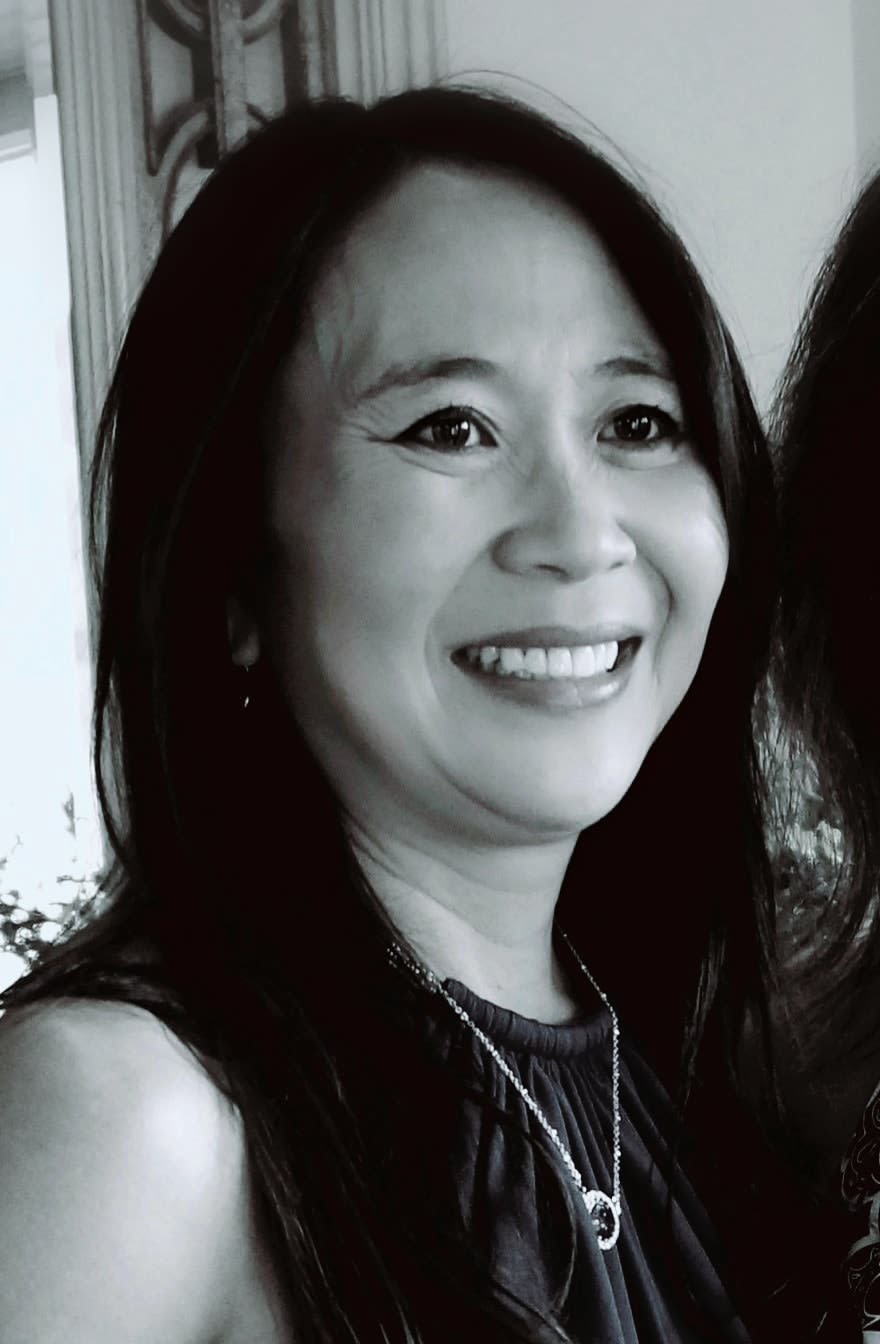 Katrina Koh, '88, '91 MCP
Katrina Koh, '88, '91 MCP
An excerpt from the Cal Alumni Association's 10/7/2021 Cal Connections article, "A Voice, a Home: How the Pilipinx American Alumni Chapter Raised $25,000 to Support Filipino Language Students", written by Shannon Moore:
"The Filipino language program, formerly the Tagalog language program, came to fruition at Berkeley in 1987 through the tireless initiative of Katrina Koh ’88, ’91. UC Berkeley had not offered a Filipino-Tagalog language class since the early 1970’s, but political movement in the Philippines and a thriving Pilipinx community at Cal created a new demand. In 1986, the People Power movement, led by President Corazon Aquino, was underway in the Philippines. When Cal announced they would be honoring President Aquino with the Berkeley Medal (see article here and President Aquino's speech to Cal here), Katrina, a junior at the time, became impassioned about bringing more representation to the Pilipinx community on campus. 'There were Japanese language courses, Chinese language courses, even Sanskrit courses! I thought ‘if we’re bringing President Aquino to Cal, I want our campus to reflect Pilipinxs and their culture. I wanted to get the program ready before she came to accept her award,' said Koh. President Corazon Aquino accepted the Berkeley Medal in 1987. That same year, the first Filipino language course from the new program was taught at Berkeley." (Click here to read more about Katrina's remarkable story.)
Make a gift today to continue Katrina Koh's legacy.
()
BUILDING THE FOUNDATION
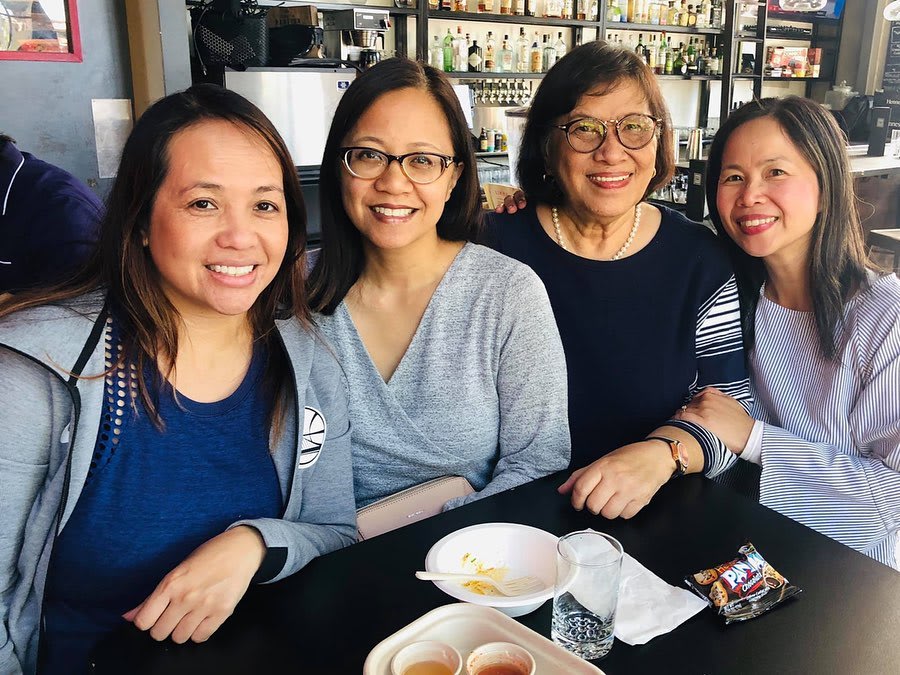 Filipino Language Lecturer, Irma Peña-Gosalvez (2nd from right), with former students during Cal Homecoming 2019. L-R:Ardees Rabang '96, Angelica Awayan '99, Jeannie E. Celestial '96
Filipino Language Lecturer, Irma Peña-Gosalvez (2nd from right), with former students during Cal Homecoming 2019. L-R:Ardees Rabang '96, Angelica Awayan '99, Jeannie E. Celestial '96
Since then, Filipino Language Studies has helped transform the diverse and inclusive educational model at UC Berkeley, thanks to our pioneering part-time instructors (the late Lydia Gonzalez-Garcia, spring 1987; Jane Po, 1987- spring 1990; Teresita Ignacio, fall 1990 - spring 1991; and the late Virgilio Enriquez, fall 1991 - spring 1992) who laid the groundwork, and the first full-time lecturer (Irma Peña-Gosalvez, aka "Ginang G" to her students) who grew the program from 1992-2008.
This significant shift, enabled greater access to the Filipino language classes, enrolling 185 students per semester (two beginner and one intermediate course) and even more students during the newly offered summer session class. Irma Peña-Gosalvez also developed a curriculum for heritage learners of Filipino and introduced the popular "Tagalog Skits", a night of short performances by her students, which brought together the greater Cal community.
The foundation that these dedicated educators built have not only provided thousands of students with a robust, academic curriculum over the past 3 decades, it has also fostered a deep sense of belonging & community for our Pilipinx American students, a historically underrepresented group on campus.
(WHERE WE ARE NOW
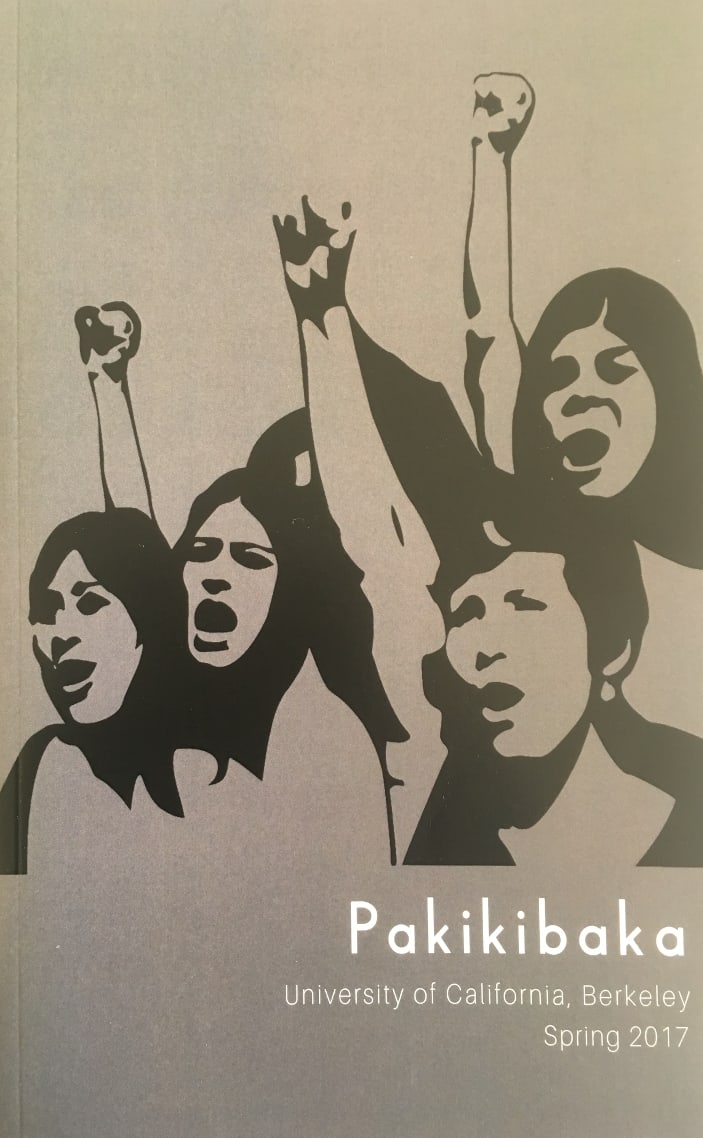 Filipino language class journal project
Filipino language class journal projectWith this solid foundation and continued high demand for Filipino language courses, our current lecturers (Joi Barrios-Leblanc, Cynthia Aban, and Karen Llagas) have taken the program to new heights. Since 2008, they have grown the language program from 3 classes per semester (2008) to 7-8 classes (2012-present). They have accomplished this through the support of Pilipinx American staff, who also co-sponsor an annual Pistahan, campus organizations, and student senators, as well as campus agencies such as APASD (Asia Pacific American Student Development) and the Multi-cultural Center.
...
In addition, they have proposed, developed, and implemented the following:
- Advanced Filipino;
- Introductory and intermediate online classes also servicing students from other campuses (started 2015);
- Freshman/sophomore classes such as Filipino Spirituality and Philippine Film; new courses, such as Philippines: History, Literature, and Performance (SEASIAN 148); Philippine Cultural Politics (SEASIAN 160), Filipino Mythology (SEASIAN 152) and Philippine Cuisine Narratives (SEASIAN 164);
- A five-week study abroad program, Philippines: Narratives of Tradition and Resistance (SEASIAN 154), that brings students to Metro Manila, Central Luzon, and the Cordillera region.
...
Make a gift today to sustain and grow this rich culture of learning and community for our Filipino language students for years to come.
...
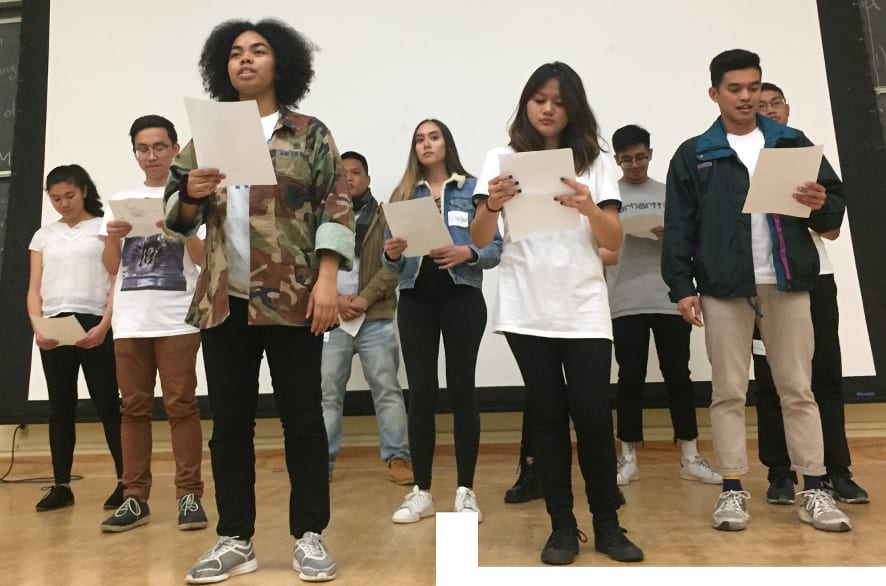 Filipino language students during "Words in Action" project
Filipino language students during "Words in Action" project
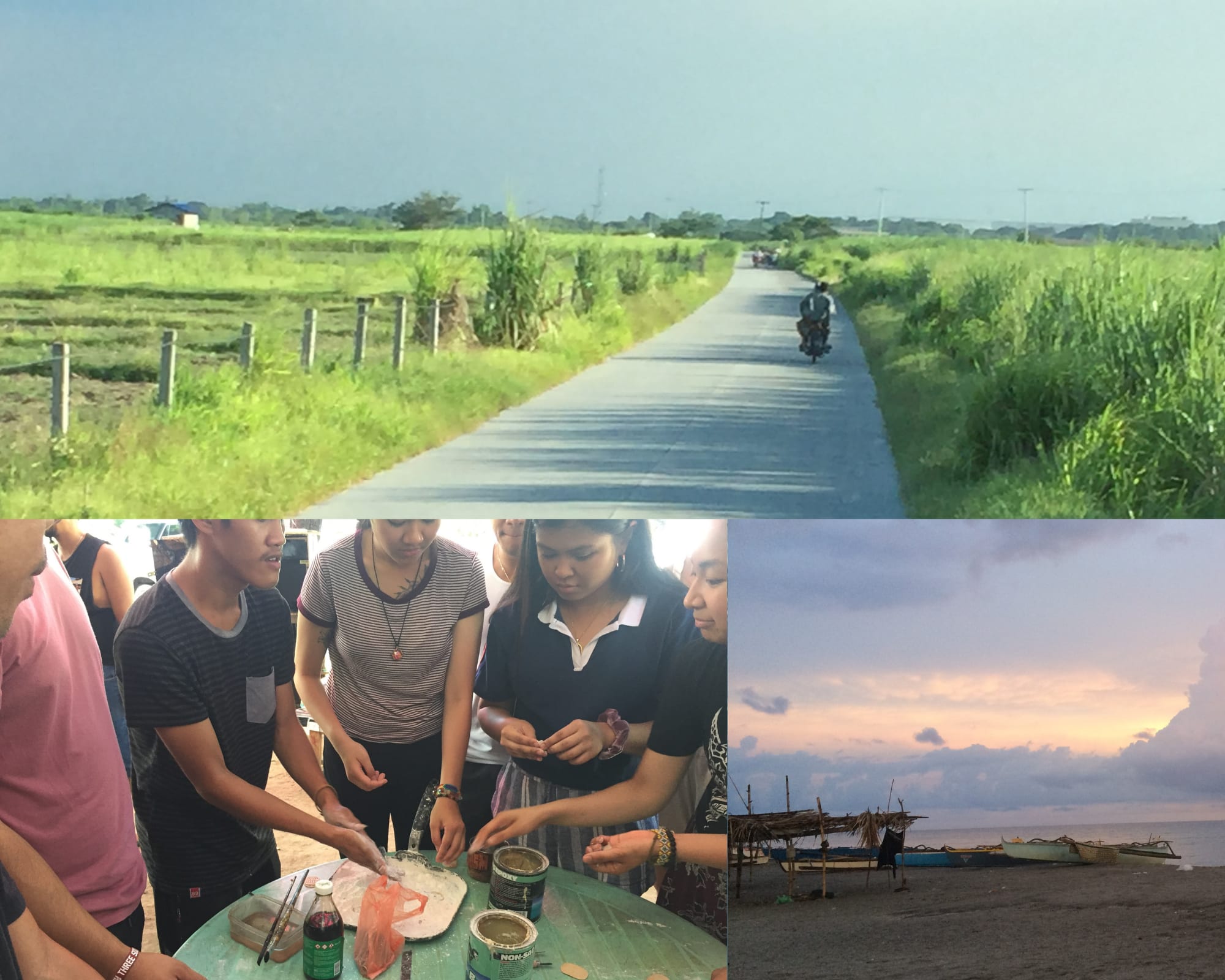 Rural landscapes and Filipino language students making ceramic art with Sumifru workers - UC Berkeley Philippine Study Abroad Program, 2019
Rural landscapes and Filipino language students making ceramic art with Sumifru workers - UC Berkeley Philippine Study Abroad Program, 2019
TESTIMONIALS
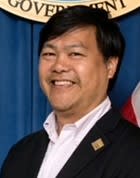 Ben de Guzman '94 - "Personally, learning Tagalog helped me unlock the doors to Filipino language and culture closed to me before. Professionally, when Tagalog instructor/community icon “Ginang G” (Irma Peña-Gosalvez) made me her first TA, it was literally the first job I had out of college. Politically, the heady mix academics and activists that were also seeking knowledge about Filipino language in my Tagalog 1A class used it to build and mobilize community through our student organizations and was in many ways, my first political home."
Ben de Guzman '94 - "Personally, learning Tagalog helped me unlock the doors to Filipino language and culture closed to me before. Professionally, when Tagalog instructor/community icon “Ginang G” (Irma Peña-Gosalvez) made me her first TA, it was literally the first job I had out of college. Politically, the heady mix academics and activists that were also seeking knowledge about Filipino language in my Tagalog 1A class used it to build and mobilize community through our student organizations and was in many ways, my first political home."
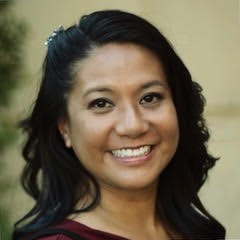 Terrie de Guia Guevarra '96 - "Tagalog gave me an opportunity as a Pilipino American to learn my language in a safe and fun environment with others who also had to sacrifice their native tongue in order to hone their English skills while growing up. I was able to learn more about my culture and I built lifelong relationships with others in my class. It was an experience that I would not have had anywhere else."
Terrie de Guia Guevarra '96 - "Tagalog gave me an opportunity as a Pilipino American to learn my language in a safe and fun environment with others who also had to sacrifice their native tongue in order to hone their English skills while growing up. I was able to learn more about my culture and I built lifelong relationships with others in my class. It was an experience that I would not have had anywhere else."
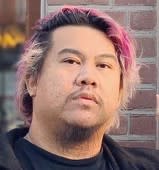 Lean de Leon '12, ASUC UC Berkeley Senator 2009-2010 - "Our Filipino teachers were instrumental in teaching hundreds of students, Filipino Americans and non-Filipinos, the rich culture and language of the Philippines. Their work also inspired and continues to give voice to many of us. Many of my peers were inspired to take their classes and even major in Southeast Asian Studies. I also worked extensively with Tita Joi as an Associated Students of the University of California (ASUC) Senator in our campaign to preserve and expand classes for Philippine culture and Tagalog language classes."
Lean de Leon '12, ASUC UC Berkeley Senator 2009-2010 - "Our Filipino teachers were instrumental in teaching hundreds of students, Filipino Americans and non-Filipinos, the rich culture and language of the Philippines. Their work also inspired and continues to give voice to many of us. Many of my peers were inspired to take their classes and even major in Southeast Asian Studies. I also worked extensively with Tita Joi as an Associated Students of the University of California (ASUC) Senator in our campaign to preserve and expand classes for Philippine culture and Tagalog language classes."
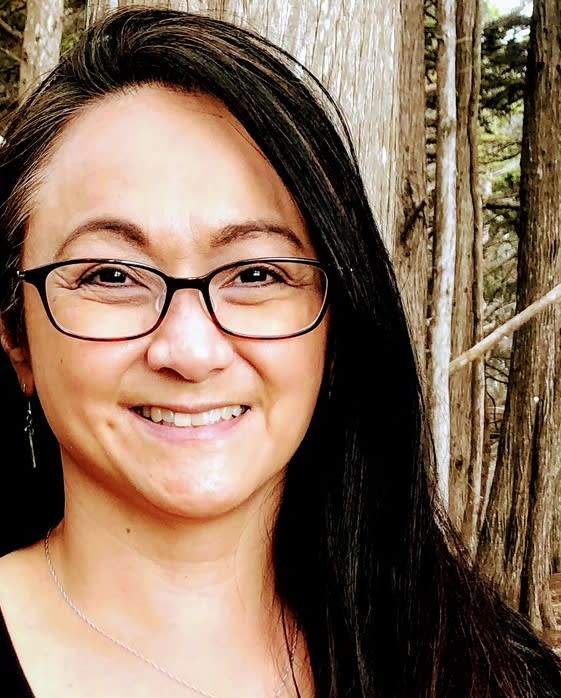 Benerva Sy Suarez '95 - "I took Tagalog classes during my first 2 years at Cal not knowing that most people wait until their later years to take a language elective. I didn’t see it as optional. I grew up in a small Midwestern town with no one else besides my family who looked like me and no peers my age that I could talk to about this. Little did I know the far-reaching impact it would have on my life. Not only did I learn the language that would help me better connect with my family and other Pilipinx, I established friendships in those classes that would endure long past my college years. Those friendships then led me to a network of student groups who would help shape my identity and instill pride in my Pilipinx culture. I hope future Cal students will continue to benefit from classes like these."
Benerva Sy Suarez '95 - "I took Tagalog classes during my first 2 years at Cal not knowing that most people wait until their later years to take a language elective. I didn’t see it as optional. I grew up in a small Midwestern town with no one else besides my family who looked like me and no peers my age that I could talk to about this. Little did I know the far-reaching impact it would have on my life. Not only did I learn the language that would help me better connect with my family and other Pilipinx, I established friendships in those classes that would endure long past my college years. Those friendships then led me to a network of student groups who would help shape my identity and instill pride in my Pilipinx culture. I hope future Cal students will continue to benefit from classes like these."
 Jan Tristan Arroyo Gaspi ‘11 - "The Southeast Asian Studies program at UC Berkeley gave me the opportunity to take advanced-level Tagalog courses. The program strengthened my writing and editing skills through its annual journal, where I served as the editor-in-chief for the first trilogy. This led to consulting and proofreading opportunities with Tuttle Publication, which eventually gave me the opportunity to publish two language books: 'Tagalog Picture Dictionary: Learn 1,500 Tagalog Words and Expressions' and 'Instant Tagalog: How to Express Over 1,000 Different Ideas with Just 100 Key Words and Phrases'."
Jan Tristan Arroyo Gaspi ‘11 - "The Southeast Asian Studies program at UC Berkeley gave me the opportunity to take advanced-level Tagalog courses. The program strengthened my writing and editing skills through its annual journal, where I served as the editor-in-chief for the first trilogy. This led to consulting and proofreading opportunities with Tuttle Publication, which eventually gave me the opportunity to publish two language books: 'Tagalog Picture Dictionary: Learn 1,500 Tagalog Words and Expressions' and 'Instant Tagalog: How to Express Over 1,000 Different Ideas with Just 100 Key Words and Phrases'."
 Manny de la Paz '94 - "Filipino Language Courses had a huge impact on my student experience at Cal! There is an incalculable value in having the opportunity to explore any culture or language as an integral part of your formal education, but I also believe it's especially significant, meaningful, and life-affirming when that opportunity is of your own culture, language, and heritage. There is still much work to be done with institutional and academic representation, but as a first-generation immigrant, to be given any amount of institutional space at Cal meant the world to me and helped me with feeling like 'I belong here'."
Manny de la Paz '94 - "Filipino Language Courses had a huge impact on my student experience at Cal! There is an incalculable value in having the opportunity to explore any culture or language as an integral part of your formal education, but I also believe it's especially significant, meaningful, and life-affirming when that opportunity is of your own culture, language, and heritage. There is still much work to be done with institutional and academic representation, but as a first-generation immigrant, to be given any amount of institutional space at Cal meant the world to me and helped me with feeling like 'I belong here'."
$50
Advocate
Your contribution of $50 will go towards the Filipino Language Studies Fund. The UC Berkeley Tax ID# is: 94-6090626. To make a recurring gift or gifts in cryptocurrency, email Melissa Urbano at murbano@berkeley.edu.
$100
Ambassador
Your contribution of $100 will go towards the Filipino Language Studies Fund. The UC Berkeley Tax ID# is: 94-6090626. To make a recurring gift or gifts in cryptocurrency, email Melissa Urbano at murbano@berkeley.edu.
$250
Oski
Your contribution of $250 will go towards the Filipino Language Studies Fund. The UC Berkeley Tax ID# is: 94-6090626. To make a recurring gift or gifts in cryptocurrency, email Melissa Urbano at murbano@berkeley.edu.
$500
Sather Gate
Your contribution of $500 will go towards the Filipino Language Studies Fund. The UC Berkeley Tax ID# is: 94-6090626. To make a recurring gift or gifts in cryptocurrency, email Melissa Urbano at murbano@berkeley.edu.
$1,000
Campanile
Your contribution of $1,000 will go towards the Filipino Language Studies Fund. The UC Berkeley Tax ID# is: 94-6090626. To make a recurring gift or gifts in cryptocurrency, email Melissa Urbano at murbano@berkeley.edu.
$5,000
Golden Bear
Your contribution of $5,000 will go towards the Filipino Language Studies Fund. The UC Berkeley Tax ID# is: 94-6090626. To make a recurring gift or gifts in cryptocurrency, email Melissa Urbano at murbano@berkeley.edu.

